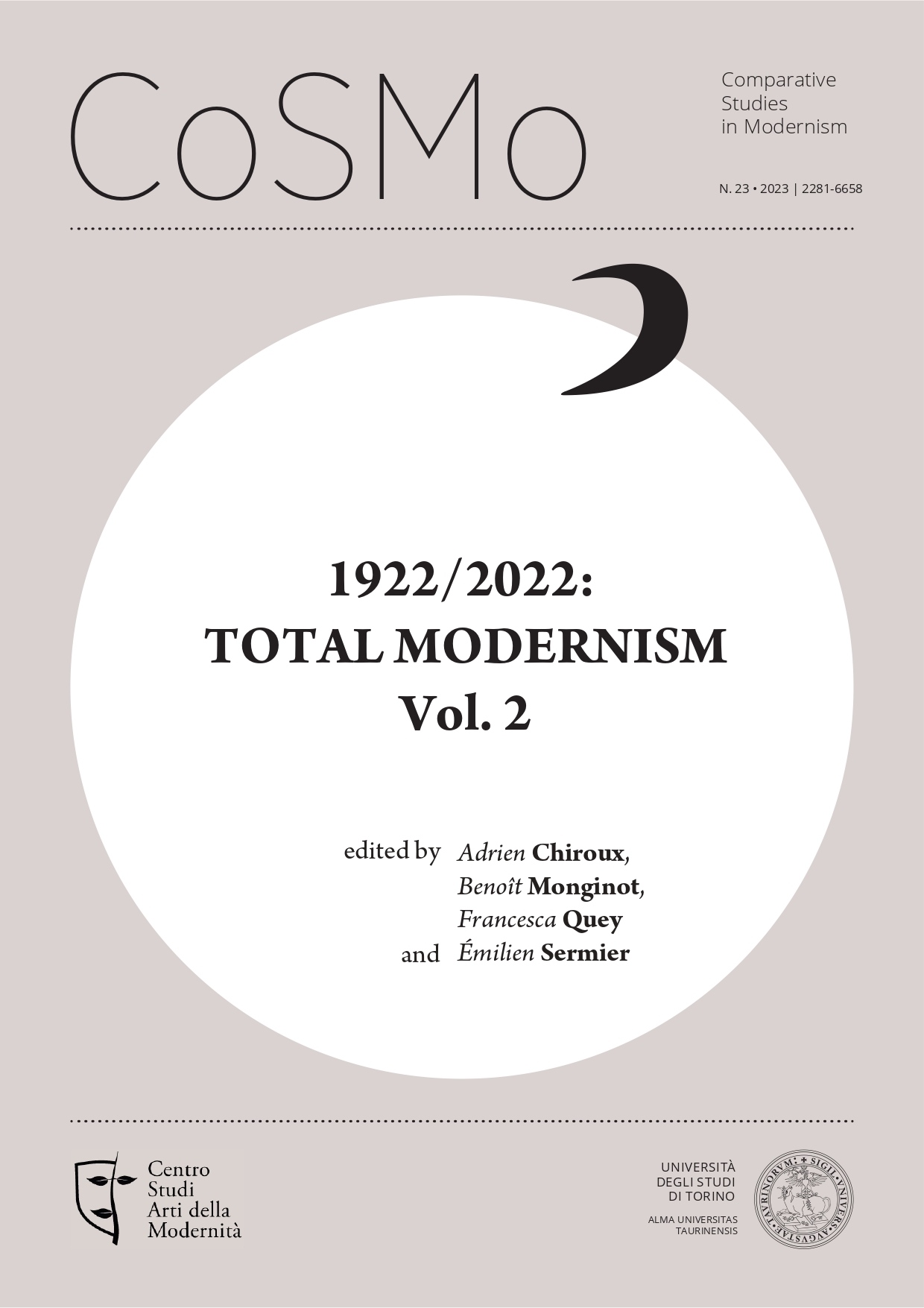From DADA to Imposture
“Eine eigenartige Koversation” by Walter Serner
Keywords:
Walter Serner, Dadaism, New Objectivity, Confidence-man, Criminal Short StoriesAbstract
After abandoning Dada, Walter Serner, a Bohemian Dadaist writer who had drafted the influential Zurich manifesto Letzte Lockerung, began writing short stories with a criminal setting. The break from Dada marks a caesura in Serner’s production; however, his short stories still move within the conceptual perimeter of the avant-garde, albeit with clear parodic intentions, aiming at ridiculing Dada itself and its adherents, in particular Tzara. This explains, for example, the modifications to the manifesto from the second draft, the adherence to the stylistic and formal canons of the New Objectivity, and the decision to entrust its ‘message’ to the human type of the ‘Confidence-man’, which already had illustrious antecedents in Germany at the time. In order to explain the paradox of the totality of Serner’s work that takes place within the confines of continuity and discontinuity, the present paper proposes an analysis of the short-story Eine eigenartige Konversation (1921), with the depiction of its writing phases, its philosophical-cultural influences, its elements of continuity with the manifesto and the main divergences from it.
Downloads
Downloads
Published
Issue
Section
License
Authors keep the copyrights for their work and give the journal the work’s first publication copyright, which is at the same time licensed under a Creative Commons License – Attribution, which in turn allows other parties to share the work with an acknowledgement of the work's authorship and initial publication in this journal.
Content Licence

You are free to copy, distribute and transmit the work, and to adapt the work. You must attribute the work in the manner specified by the author or licensor (but not in any way that suggests that they endorse you or your use of the work).
Metadata licence

CoSMo published articles metadata are dedicated to the public domain by waiving all publisher's rights to the work worldwide under copyright law, including all related and neighboring rights, to the extent allowed by law.
You can copy, modify, distribute and perform the work, even for commercial purposes, all without asking permission.





